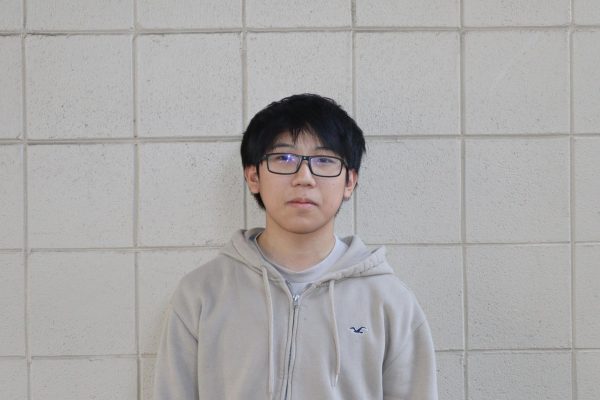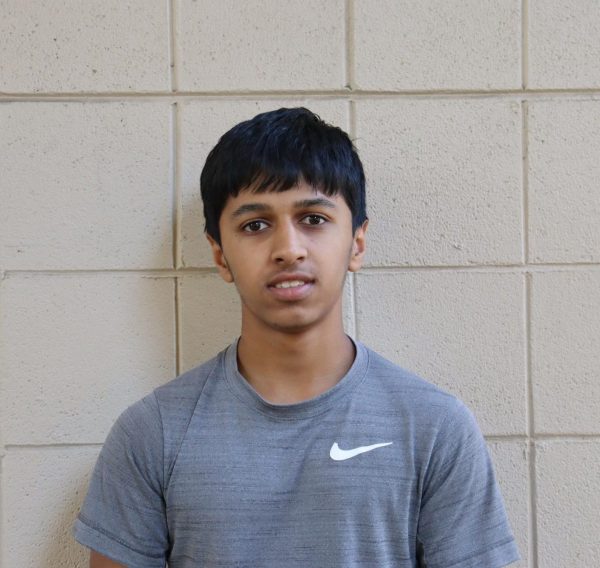Last year, as a freshman, sophomore Brian Le decided to take on a challenge that many would consider daunting: self-studying for an AP exam.
Without the support from a traditional classroom and teacher, Le delved deep into the foundational concepts and theories of human behavior and mental processes covered in AP Psychology, all while balancing a full schedule of high school classes.
Le is just one of the many students around the country and at the school who have self-studied for an AP exam. In recent years, the number of students who are taking AP tests has become a growing trend, with 30% more students taking AP exams than from 2013 according to College Board. It’s not clear how much of this increase is because of self-studiers, but it is at least part of the reason for this increase.
There are a variety of reasons more students appear to be self-studying. The main ones include earning college credits, not having access to the course at school, wanting to pursue personal learning goals, and showing academic rigor to colleges. Additionally, it is widely recognized that colleges value seeing a higher number of AP courses and exams on students’ transcripts. AP Psychology is a good example of this trend here. Even though no class on campus has that title, many students still choose to self-study for the exam because of their genuine desire to learn about the topic and the value it adds to their college application.
The school actually offers a psychology class taught by Hana Chen, but since it’s a regular college prep class rather than a college level AP class, the class doesn’t have the mission of preparing students for the test. For Le, his initial interest to self-study for psychology stemmed from his interest in the subject, in addition to his desire to increase his number of APs that he could put on his college application.
“I also felt like psychology was both good for me to learn and was also a good introduction to AP exams, since I heard that it wasn’t too difficult of an AP to self-study, and I didn’t want to take a hard AP in my freshman year,” Le said.
Aside from AP Psychology, other common exams that students often self-study for are AP Microeconomics and AP Macroeconomics courses, which aren’t offered at the school. This means students who are self-studying for these exams will have to take them at other testing locations.
The reasoning behind self-studying for the AP Microeconomics and Macroeconomics exams is similar to the trend for AP Psychology: The classes aren’t offered as AP courses at Saratoga High, so many students who are interested in business or economics decide to self-study for them.
Junior Jena Lew, who is interested in business and economics as future career possibilities, and hopes to study economics as her major in college, has been studying for AP Microeconomics and AP Macroeconomics since the start of the summer.
For self-studying students like her, UC Scout — an online program which offers university accredited AP courses — provides a quality, practical learning model to learn on their own. Throughout his freshman year, Le used the many videos provided by UC Scout to self-study for the AP Psychology exam as well.
Lew has used a combination of UC Scout, along with other free resources like Khan Academy and Fiveable.
“The free resources are really valuable because you can still earn a top score without needing to pay a lot of money to some website which gives the same resources as some free resources out there,” Lew said.
Some other common resources used by students for self-studying are videos from AP Classroom and Barron’s AP test prep books. Barron’s offers test prep books for the majority of AP exams, with hundreds of practice problems and several practice exams in each book, making it one of the most popular options for self-studying.
“Barron’s AP Music Theory textbook was a lifesaver because it had many practice tests and their website had soundtracks for dictation exercises,” said sophomore Richard Chen, an orchestra student who scored a 5 on the AP Music Theory exam in his freshman year.
Every year, there’s also a small number of underclassmen taking Biology or Honors Chemistry who decide to self-study AP Biology or Chemistry, including sophomore Nathan Hu, who is self-studying AP Chemistry with a tutor while taking Chemistry Honors at school. Despite AP Chemistry’s infamous reputation as one of the most difficult APs, Hu believes that it’s a challenge worth taking.
While students like Lew and Le say they self-study out of interest in the subjects, Hu chose to self-study AP Chemistry for its practical benefits. His reasoning also aligns along the trend of studying for the benefit of college applications. Hu wanted to free up space in his schedule for his junior and senior years, so that instead of having to take AP Chemistry later on, he can instead take other AP science classes. Hu also feels that the tutoring he gets for AP Chemistry greatly helps him with his Honors Chemistry class, reinforcing the concepts and allowing him to grasp the material more deeply.
“It’s both challenging and rewarding,” Hu said. “I enjoy the engaging discussions led by my tutor, who has a PhD in Chemistry, and I appreciate how the rigorous curriculum fosters critical thinking and deepens my understanding of chemistry.”.
However, most teachers teaching these courses advise students they do not need to self-study.
“I think they’re missing out on a lot of the lab experiences that we’re doing in class by self-studying, since 25% of the courses are labs, and a part of that is also being able to work in groups and problem solve,” Biology teacher Cheryl Lenz said.
Although self-studying for AP exams seems challenging, it is a task that many students are deciding to challenge themselves with.
“I think that self-studying APs, especially when they’re related to what you might want to do in the future,” Lew said. “If you have enough time and focus on your school classes, which affect your GPA, I think self-studying can be very valuable.”




























